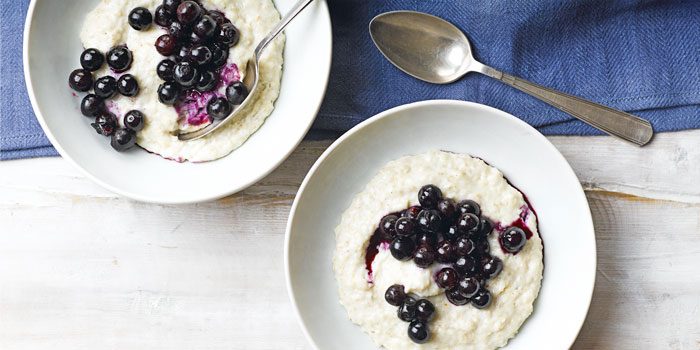
There are many types and varieties of dietary fats when you eat foods. Some are safe while others can be harmful. In addition, they may contribute to your weight gain. If you eat too often, it can make it difficult to lose weight. To avoid this problem, you must limit your intake of fat. Here's how it works: First identify the fats in your diet. They are classified into saturated, trans, and unsaturated.
Knowing the difference between saturated fats and unsaturated oils is crucial to understanding how to eat healthy, fat-free fats. Saturated oils are solid at room temperature and can be found in animal products, such as red meat and full-fat dairy products. Coconut oil and palm oils are other sources of saturated fats. Monounsaturated and polyunsaturated fats are good for your health, but you can find them in olive oils and vegetable oils.

Different types of dietary fats exist. Monounsaturated and saturated fats are harmful for your health. Saturated fats, which are the most harmful type of fat, should be avoided if you want to lose weight. However, saturated and trans fats have a negative impact on your health. It is best to limit your daily intake of saturated and trans fats to between five and ten g per day.
Saturated fats are good for the body. However, it's best not to consume more than necessary. Saturated fats can make you gain weight and increase your risk of diabetes and cancer. It is important to reduce the amount of saturated fats you consume. By following these tips, you can make your diet more nutritious while reducing your overall calorie intake. The following foods are the most beneficial to your health.
The most dangerous are saturated fats. While saturated fats can cause heart disease, they should account for about five to six percent of your daily calories. It is important to remember that saturated fats are allowed in your diet. You can include fatty oils in most fatty foods. If you are consuming only one type or fat, you have the option to replace it with an unsaturated variety.

Saturated fats can be the most dangerous. These fats are highly harmful to your health. So, you should try to reduce the amount of saturated fats in your diet. Saturated oils can lead to weight gain. It's also important to watch your sodium intake. The American Heart Association suggests that saturated fats be limited. If you're looking for the best options for your diet, you should try to eat more vegetables, fruits, and whole-grain foods.
There are two types dietary fats. They can be found in animal and plant-based food. Saturated fats can be harmful to your heart, but omega-3 fats are good for you. They also have many other health benefits. You can benefit from the omega-3 oils in fish and poultry. They are vital to your heart's health. Your heart will be grateful if you eat omega-3 fatty acid rich foods.
FAQ
How do you lose weight?
It's not easy to lose weight. Many people give up because they don’t know what else to do.
There are simple steps you can take in order to lose those extra pounds.
First, ensure you eat fewer calories that you burn. You will gain weight if you eat more calories than you burn.
You should also exercise regularly in order to lose all those calories. There are many types of exercise you can do, such as walking, running, cycling, and dancing.
Third, you need to stop drinking alcohol and smoking cigarettes. These habits will cause you more calories than normal.
Fourth, you should cut back on junk food. These can be replaced with healthier options like fruits, vegetables and whole grains.
Fifth, it is important to make lifestyle changes and develop new habits. You may have to get up before the rest of the world to exercise.
Sixth, it is important to be disciplined about your diet and follow it.
You can also burn excess calories by joining a gym, or taking an aerobics course.
Follow these simple steps and you'll soon start to see the results.
Do I have to exercise every single day?
No! No! This means that you should be able to walk fast enough to feel slightly out of breath, or bike hard enough to sweat.
Cardio Exercise: Good or Bad for Your Health?
Cardiovascular exercise has many advantages. It increases blood circulation, strengthens the heart muscle, boosts stamina, aids in weight loss, and gives you more energy.
Cardiovascular exercise includes running, biking, hiking, swimming, tennis, basketball, soccer, volleyball, football, etc.
It is important to remember that cardio exercises should not be performed at high-intensity levels. This could cause injury.
Only do the cardio exercise when you are feeling good.
It is important not to push yourself beyond your limits. Otherwise, you could end up injuring yourself.
Warm up is the best way to start cardiovascular exercise. Next, increase your intensity gradually.
Be aware of your body and listen to it. If you feel pain while performing cardiovascular exercise, it is important to stop immediately.
Also, after a cardiovascular workout, it's advisable to take a rest. This allows your muscles time to recover.
Cardiovascular exercise is essential for losing weight.
This is the best way to lose weight and belly fat.
Is Cardio Better Than Strength Training?
Both are equally good. But cardio is a much better choice if you want to gain muscles faster.
Cardio burns more calories in a minute than strength training and more fat.
Strength training helps build muscle mass. But it takes longer than cardio to accomplish this goal.
What are the best foods to avoid when trying weight loss?
Trans fats should be avoided. Trans fats can increase LDL (the negative) cholesterol levels and decrease HDL (the positive) cholesterol.
Trans fats are found in deep-fried foods, fast food, packaged baked goods, snack cakes, and other processed foods.
These unhealthy fats cause inflammation which leads to heart disease, diabetes, and other health problems.
Foods containing artificial sweeteners should also be avoided. Artificial sweeteners may increase your chance of getting cancer.
These chemicals are used in everything from soft drinks to chewing gum to candy bars. They appear in many other foods, including meat, poultry, fish, and eggs.
Artificial sweeteners include saccharin and sorbitol.
These chemicals can damage DNA and cause cell death, according to the American Heart Association.
How many calories should I eat daily?
It varies from one person to another. An average person needs 2000-2500 calories per day. You need to determine how many calories you need based on age, gender, height, weight, activity level, and lifestyle.
What does butter do to men?
Butter is one of many good sources of saturated fats. This fat is good for hair and skin health, as well as stronger bones.
Butter also contains vitamin K, which prevents bleeding from cuts and bruises. Vitamin K and vitamin C work together to prevent bruising.
Butter is rich in minerals such as calcium, potassium, and phosphorous. These minerals promote stronger bones, teeth, and teeth.
Butter is not without its flaws. Butter contains high amounts of cholesterol. Research has shown that high levels of cholesterol could increase your chances of developing cardiovascular disease.
Butter is also high in saturated fat which can lead to obesity and higher cholesterol.
Butter can be spread on bread, but you don't have to dip it into soups or salads if you absolutely must. Bread absorbs oil more than pasta or potatoes.
Statistics
- An estimated calorie range for moderately active adult males falls between 2,200 to 2,800 calories per day, depending on age. (eatright.org)
- According to the American Academy of Dermatology (AAD), men over 50 are at a heightened risk of developing it. (healthline.com)
- By John Thompson Take a whopping 38% off a set of PowerBlock Pros. (menshealth.com)
- Cardmembers earn 5% Back at Amazon.com with a Prime Credit Card. (amazon.com)
- Get free shipping and 25% off today. (healthline.com)
External Links
How To
How to Eat Well with Men
Smaller meals are better than three large meals spread out over the course of the day. You will spend less time consuming food and your stomach. Later you will be less likely to overeat.
Avoid snacks before bedtime. Do not eat after midnight. You may wake up hungry and overeat next day.
A light snack is a better choice.
Avoid "snack attacks," where you grab something to eat whenever you feel hungry. This is particularly dangerous if your weight is already high.
Be sure to balance your meals. Avoid skipping breakfast and make sure that you don't eat too much at lunch and dinner.
Reduce your calorie intake if you are having difficulty losing weight.
Eliminate alcohol, caffeine, as well as nicotine. Both can influence how your body processes nutrients.
Get enough sleep. Sleep deprivation makes people crave junk food.
Exercise regularly. Exercise improves your mood, boosts energy levels, and burns extra calories.
Take care to your mental health. Stress can lead to overeating and weight gain.
Learn to relax. Meditation and yoga can relieve anxiety and stress.
Keep track what you eat. Note everything that you put in your mouth.
Do not forget to take your supplements! The majority of men don’t get enough vitamins, minerals and nutrients to remain healthy.
Take a multivitamin every day. A multivitamin every day can help to prevent certain key vitamins or minerals from becoming deficient.
You might consider taking a vitamin-C supplement. Vitamin C helps prevent scurvy and strengthens your immune system.
Include zinc in your diet. Impotence could be caused if you are deficient in zinc
Get enough water. Drink water at a minimum of 1.5 liters (or 4 cups) per day.
Limit salt. Sodium raises blood pressure and leads to heart disease.
Avoid trans fats. Trans fat has been linked with higher obesity, diabetes and heart disease rates.
Best male enhancement pills 2018 - Best Male Enhancement Pills Review
There are many male enhancement options available. Some work well, while others do not provide any real results. This article will help you find the best male enhancement drugs that actually work.